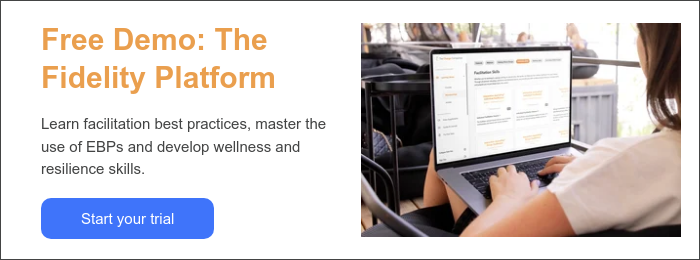January 2024 News Roundup

Every month, we’re bringing you the top news in addiction treatment and justice services from publications around the country.
Addiction Treatment | Justice Services | What We're Reading
Addiction Treatment
Headline
Mental hospitals warehoused the sick. Congress wants to let them try again.
What
The article discusses a proposal by Congress to revive mental hospitals as a response to the opioid crisis and growing numbers of drug users with mental health issues. Advocates argue that reopening these facilities could provide a crucial intervention point for individuals struggling with substance abuse and mental health disorders. However, critics raise concerns about potential abuses and the need for comprehensive, community-based solutions to address the underlying issues.
What’s driving this?
Public health groups, including the Treatment Advocacy Center and the National Alliance on Mental Illness, along with state Medicaid directors, support overturning the 1965 rule that bars Medicaid funding for hospital treatment, citing unintended consequences such as a shortage of psychiatric beds. They argue that this policy leads to vulnerable individuals being left on the streets, in emergency rooms, jails or facing fatal outcomes. Additionally, they highlight how the policy perpetuates discrimination against those suffering from drug addiction and mental illness compared to individuals with physical conditions, who do not face similar exclusions from Medicaid funding.
Headline
FDA approves first test to help screen for risk of opioid use disorder
What
The article discusses a newly developed urine test, AutoGenomic’s AvertD, that aims to predict an individual's risk of opioid use disorder (OUD). Researchers believe this test could help identify patients who are at high risk of developing OUD before they are prescribed opioids.
Why this matters
By identifying individuals at risk for OUDs early, healthcare providers can take preventive measures and offer alternative pain management strategies to mitigate the risk of opioid addiction.
Read more | Learn how we support opioid abatement
Headline
ASAM releases public policy statement on government strategies to foster ethical addiction treatment
What
The American Society of Addiction Medicine (ASAM) has released a Public Policy Statement urging policymakers to adopt strategies that promote ethical addiction treatment to save lives and support long-term recovery. ASAM highlights the need to address various factors undermining effective addiction treatment, including coercive strategies, fraudulent practices and profit-seeking behaviors.
The recommendations in brief:
- Develop and update national standards for state licensure of addiction treatment programs based on the ASAM Criteria.
- Provide resources for establishing performance measures in addiction treatment.
- Fund research on the efficacy and impact of coercive strategies in addiction treatment.
- Establish confidential mechanisms to investigate unethical practices in addiction care.
- Ensure fair and truthful advertising for addiction treatment programs online.
- Facilitate and incentivize addiction clinicians and programs to accept public and commercial insurance.
Justice Services
Headline
Office of Justice Programs and Department of Education leaders tout progress in educational opportunities for incarcerated individuals at American Correctional Association Conference
What
The article highlights the progress made by the Office of Justice Programs (OJP) and the Department of Education in advancing educational opportunities for incarcerated individuals. Leaders from both departments commend the implementation of educational programming in correctional facilities, emphasizing its role in reducing recidivism and promoting successful reentry.
Quote from Assistant Attorney General Solomon
“Postsecondary education improves the likelihood of reentry success. And research bears this out — it’s strongly associated with reductions in recidivism, and it pays for itself four times over.”
Headline
Justice Department, AmeriCorps partner to support juvenile-justice involved youth reentering their communities
What
The article discusses a partnership between the Justice Department and AmeriCorps to support crime victims and survivors across the United States. The initiative aims to bolster community-based efforts to address the needs of crime victims and enhance their access to support services, ultimately promoting healing and resilience.
AmeriCorps’ plan
Through this collaboration, AmeriCorps members will provide direct services to individuals affected by crime, including emotional support, access to resources and assistance navigating the criminal justice system.
Headline
Practitioners share strategies in reentry planning for parents and families
What
Nearly half of individuals in state and federal prisons are parents with minor children, highlighting the necessity for comprehensive reentry programs that aid families throughout incarceration and reintegrating into society. Hosted by the U.S. Department of Justice's Office of Juvenile Justice and Delinquency Prevention (OJJDP) and The Council of State Governments (CSG) Justice Center, the first-ever convening of Second Chance Act Addressing the Needs of Incarcerated Parents and Their Minor Children gathered grantees, state and local criminal justice leaders and service providers from 27 projects across 21 states to discuss best practices and emerging issues in reentry programming for parents and families.
Five key themes
- Learning from Lived Experience
- Reentry and Family Reunification Planning Starts at Day One
- Leaning on Community
- Data and Documentation
- Caring for Corrections and Program Staff
What We're Reading
The Harm Reduction Workbook for Addiction
The Harm Reduction Workbook for Addiction: Motivational Interviewing Skills to Create a Personalized Recovery Plan and Make Lasting Change by Kristin Dempsey uses an evidence-based approach to help individuals explore their relationship to substance use, identify their strengths, values and goals, and reflect on their own motivations to change. Join us in our upcoming webinar with Kristin—The ASAM Criteria Unplugged and Other Tales from the Field, Episode 3: Kristin L. Dempsey, EdD, LMFT, LPCC—on February 8.



